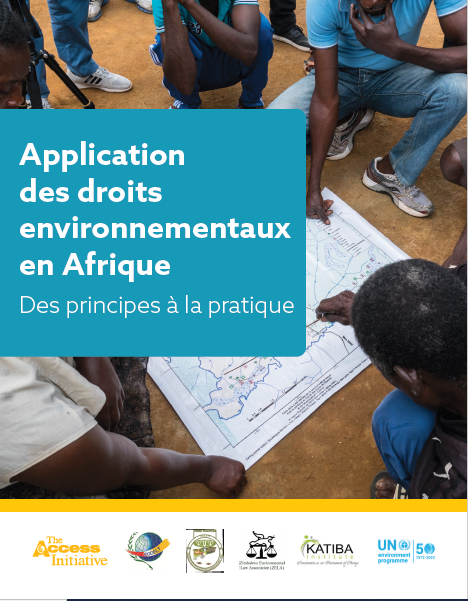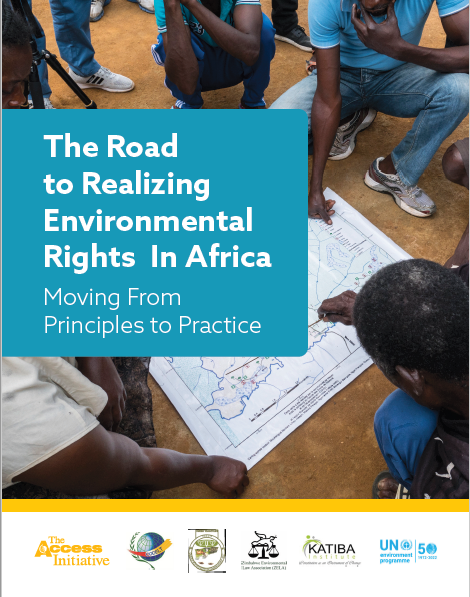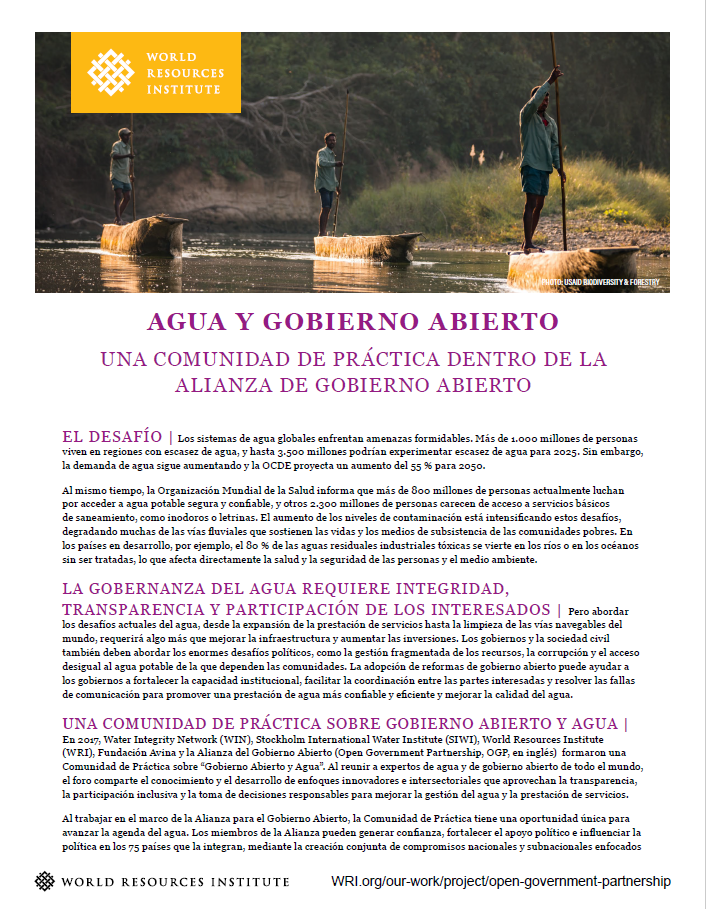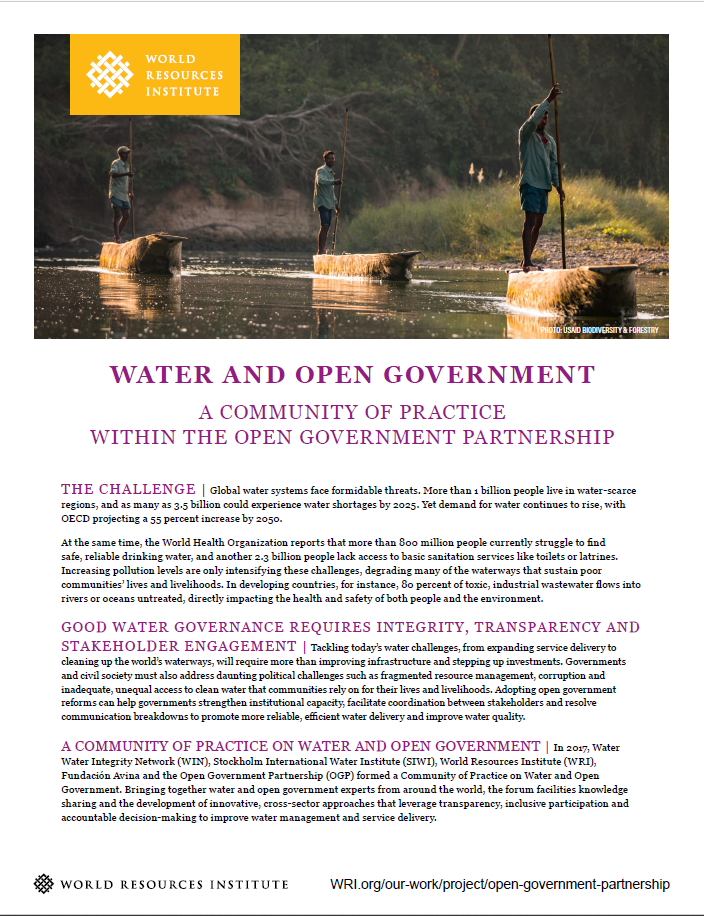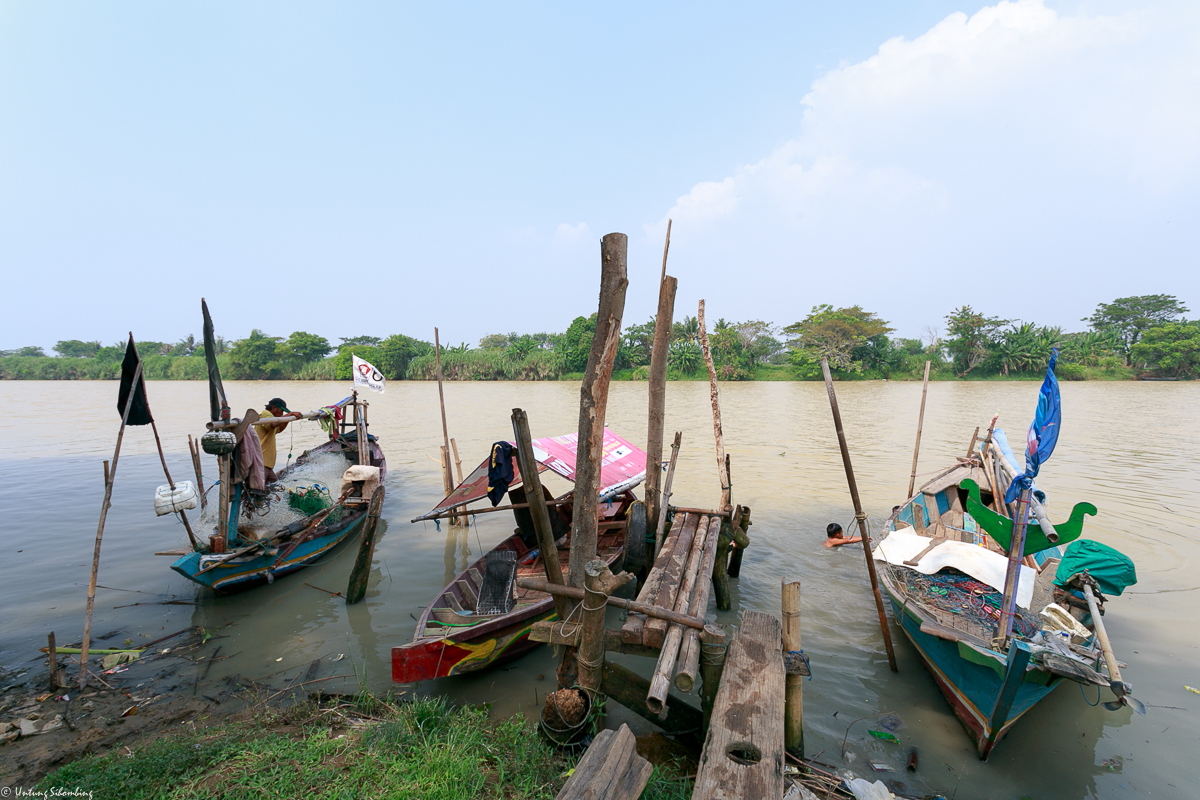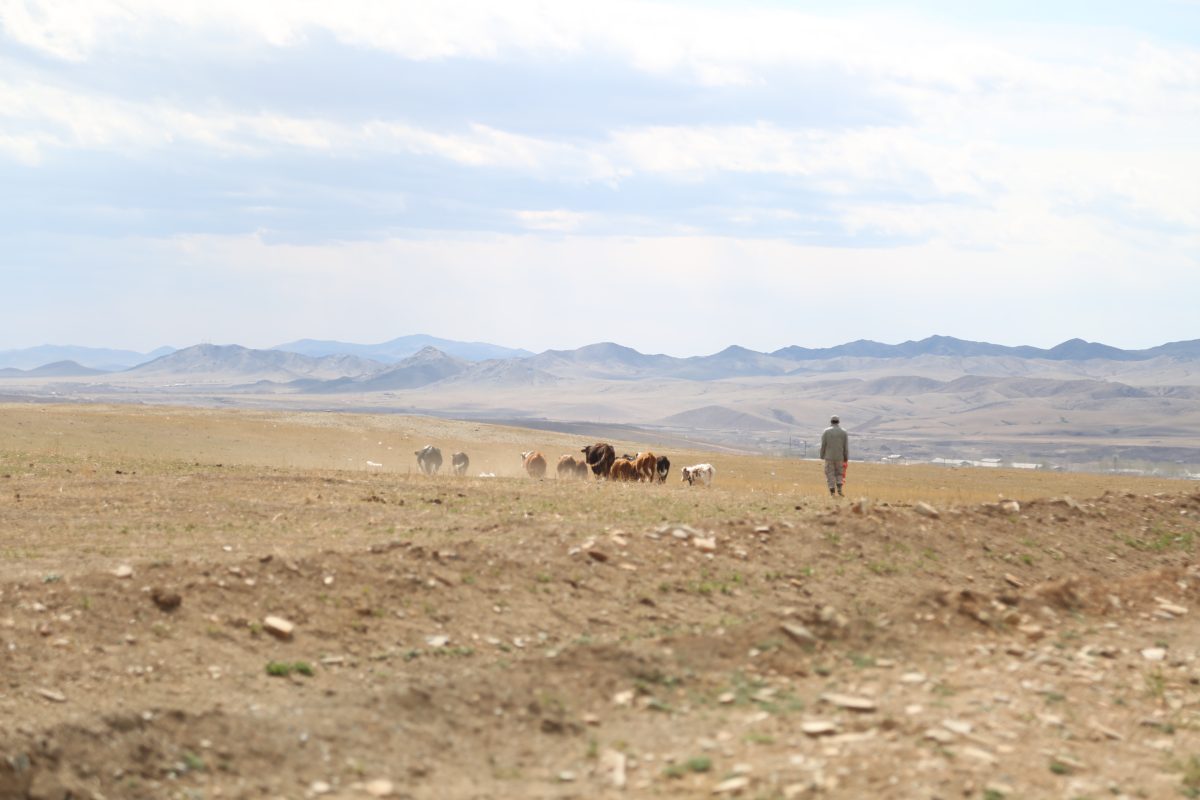This article is the second in a series on WRI’s latest report, Thirsting for Justice: Transparency and Poor People’s Struggle for Clean Water in Indonesia, Mongolia, and Thailand. This post focuses on Mongolia, where toxic chemicals from gold mining threaten residents and their herds.
Baasan Tsend, a nomadic herder living in the Mongolian gold mining region of Zaamar, suspects that the water he uses for drinking, bathing and raising his livestock is toxic. Over the past two decades, he’s watched dozens of multi-million-dollar corporations and powerful Mongolian companies pillage his ancestral homeland in search of gold. He’s seen these mines contaminate the groundwater and rivers that have sustained his family’s way of life for generations and consoled neighbors whose animals died after drinking the polluted water.
“We cannot live here,” Tsend says, holding his grandson’s hand. “It is now impossible for any human or animal to drink from that water.”
Like Tsend’s village, poor communities across Mongolia—those that still depend on local water sources—have suffered most from the water pollution that has accompanied the country’s gold rush. Lead, arsenic and other toxic chemicals released during gold extraction processes have leached into Mongolia’s groundwater and flowed untreated into rivers. Exposure to these pollutants can cause severe, long-term health effects, from skin and bladder cancers to irreversible immune system and neurological disorders.
Contaminated water also threatens Mongolian herders’ livelihoods. For many families, livestock are their primary, and often only, source of income. When their animals get sick or die from drinking bad water, herders are left with nothing. They have few financial safety nets and limited economic opportunities.
As the scramble for gold in Tsend’s village heats up again, water pollution is also on the rise across Mongolia and throughout Asia. Each year, industrial facilities dump 300-400 million tons of heavy metals, toxic sludge and other pollutants into the world’s waters, and in Asia, 80-90 percent of wastewater flows untreated back into ground and surface water sources. Yet secrecy around the amount and type of chemicals that companies discharge is still the norm, especially in Asia. Worldwide, 80 percent of countries do not provide comprehensive information on the amount of pollution that companies release into the environment.
A new WRI report, Thirsting for Justice: Transparency and Poor People’s Struggle for Clean Water in Indonesia, Mongolia, and Thailand, examines vulnerable communities’ access to water pollution information in these three countries. It finds that, like many Asian nations, Mongolia, Indonesia and Thailand have all established comprehensive laws that mandate proactive disclosure of water pollution information to the public. Mongolia’s laws, for instance, recognize citizens’ right to obtain environmental data from the government, and establish concrete steps officials must take to release this information to local communities. Yet WRI’s report shows that, despite passing these strong “right to know” laws, Mongolia, Indonesia and Thailand are putting many of their poorest communities at risk by not effectively telling them if their water is safe to use.
Resolving this environmental injustice will require these governments, and others across Asia, to address three barriers that obstruct local communities’ access to information:
Gaps in Local Water Quality Information
Across the world, people need to know if their water sources are too contaminated to drink, cook with, fish or give to their livestock. They need to understand what pollutants companies are releasing into their water sources, how these chemicals will impact their health, which companies are contaminating their waterways and what steps governments have taken to prevent further degradation. Access to this information not only allows families to make more informed choices about their water use, but also enables them to monitor industrial facilities’ compliance with environmental regulations and hold law-breaking polluters to account.
But in Mongolia, Indonesia and Thailand, the data that governments disclose concern ecosystem impacts or threats to overall water quality―not the local, facility-specific and health information that communities need. Mongolia, for instance, does not disclose individual facilities’ pollution discharges, issue permits regulating these discharges or provide companies’ compliance records. Our research partners were also unable to locate any information about health risks associated with using contaminated water, or water quality data for local sources.
In Indonesia, community members face comparable challenges accessing facility-specific information. Although their government publicly rates companies’ compliance with Indonesian environmental regulations, including water pollution controls, officials do not disclose the criteria they use to evaluate compliance. Nor do they release any information on the amount or type of pollutants that facilities dump into local waterways.
Inaccessible Water Pollution Information
The information that Indonesian, Mongolian and Thai governments do release is inaccessible to local community members, many of whom live below the poverty line and reside far from government offices. Villagers in Tsend’s hometown of Tumstii, for example, have few computers and limited internet access, making it nearly impossible for them to navigate national websites or access online databases.
Similarly, when community members in Thailand’s Rayong province submitted information requests to get water data that they couldn’t find online, officials told them that they had to search for the documents in Bangkok—a demand that shifted the burden onto poor villagers to cover travel costs and forfeit a day’s earnings.
Technical, Hard-to-Understand Data
Even when people can successfully access water pollution information, the data that governments provide is so technical that community members cannot understand it. Indonesian fishermen in Serang, a village on the Ciujung River, had to rely on civil society organizations to translate the raw data provided into pictures that they could understand. Mongolian herders also needed local nonprofits to explain the technical responses they obtained through information requests. Community members we interviewed in Thailand received official documents in English, a language they couldn’t speak.
Suffering the Consequences
Without access to pollution information, Tsend can’t protect his grandson from drinking contaminated water. He can’t determine whether it’s safer to give his herd groundwater from a well or let them drink from the river. He can’t meaningfully participate in local decision-making, pressure his government to protect his community from exploitation, or hold companies responsible for environmental violations.
Improving transparency of water pollution data will give Tsend’s village and poor communities throughout Asia access to the information their governments are legally obligated to provide and a voice in the water justice movement. It is an essential first step in claiming their right to clean water.
